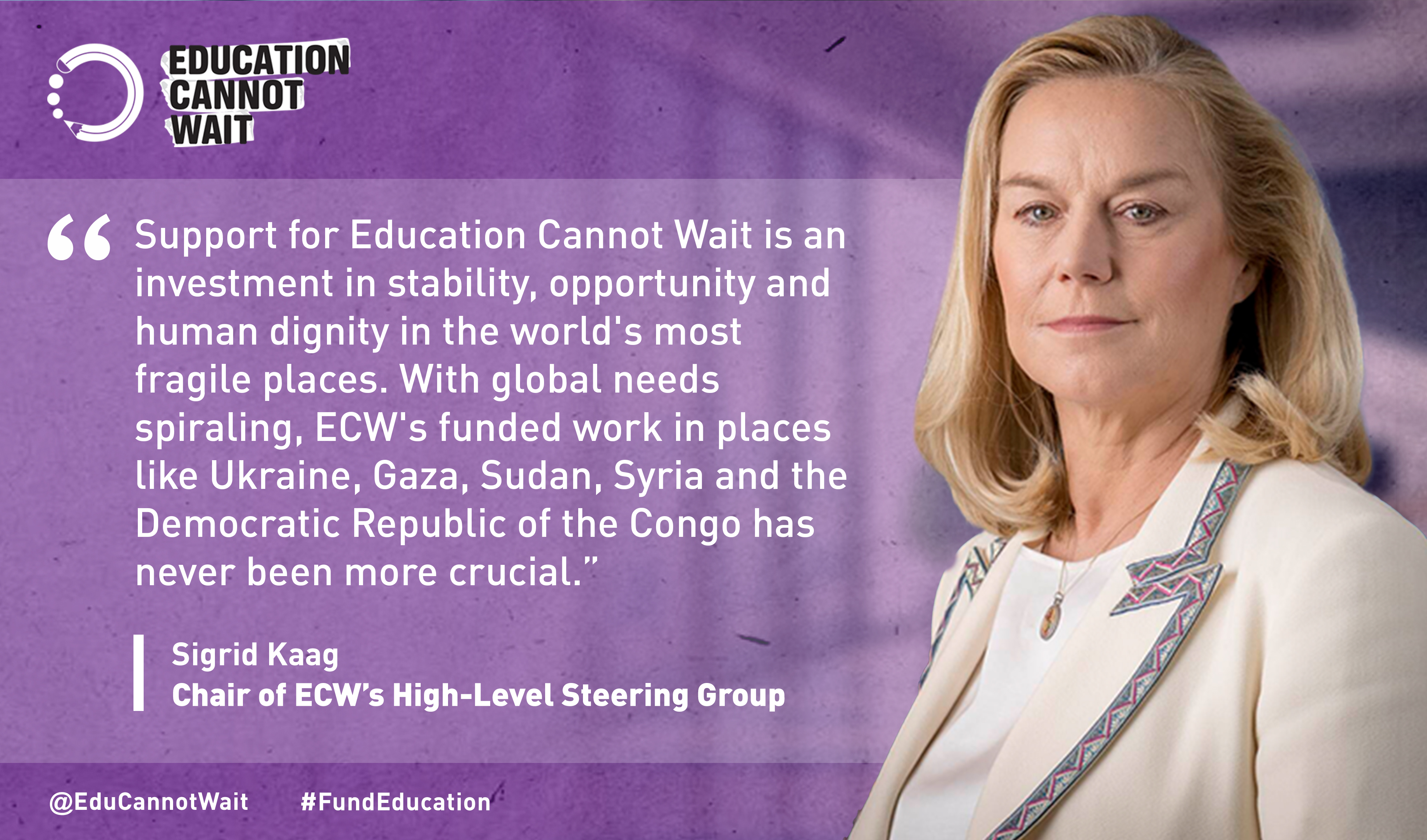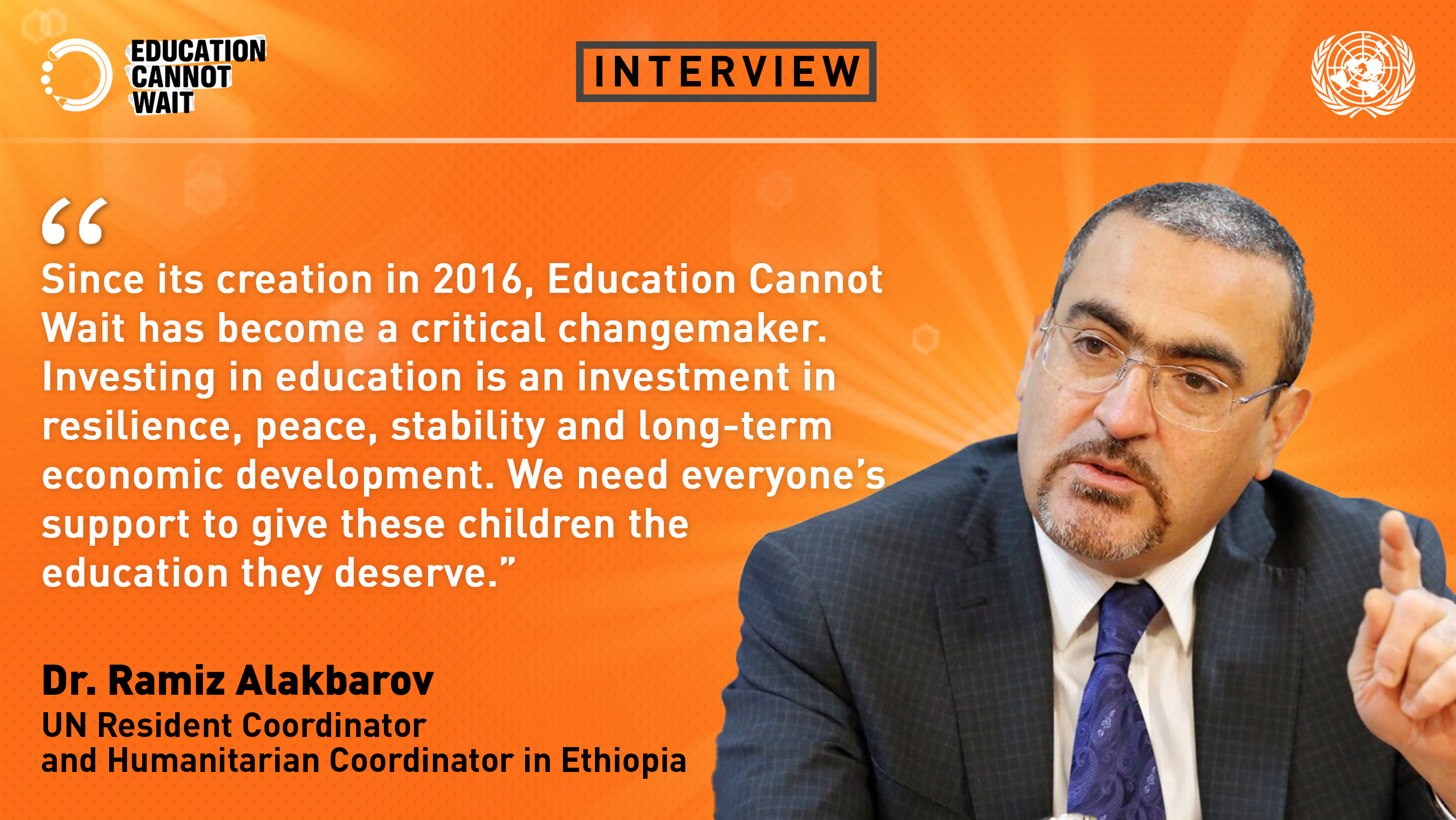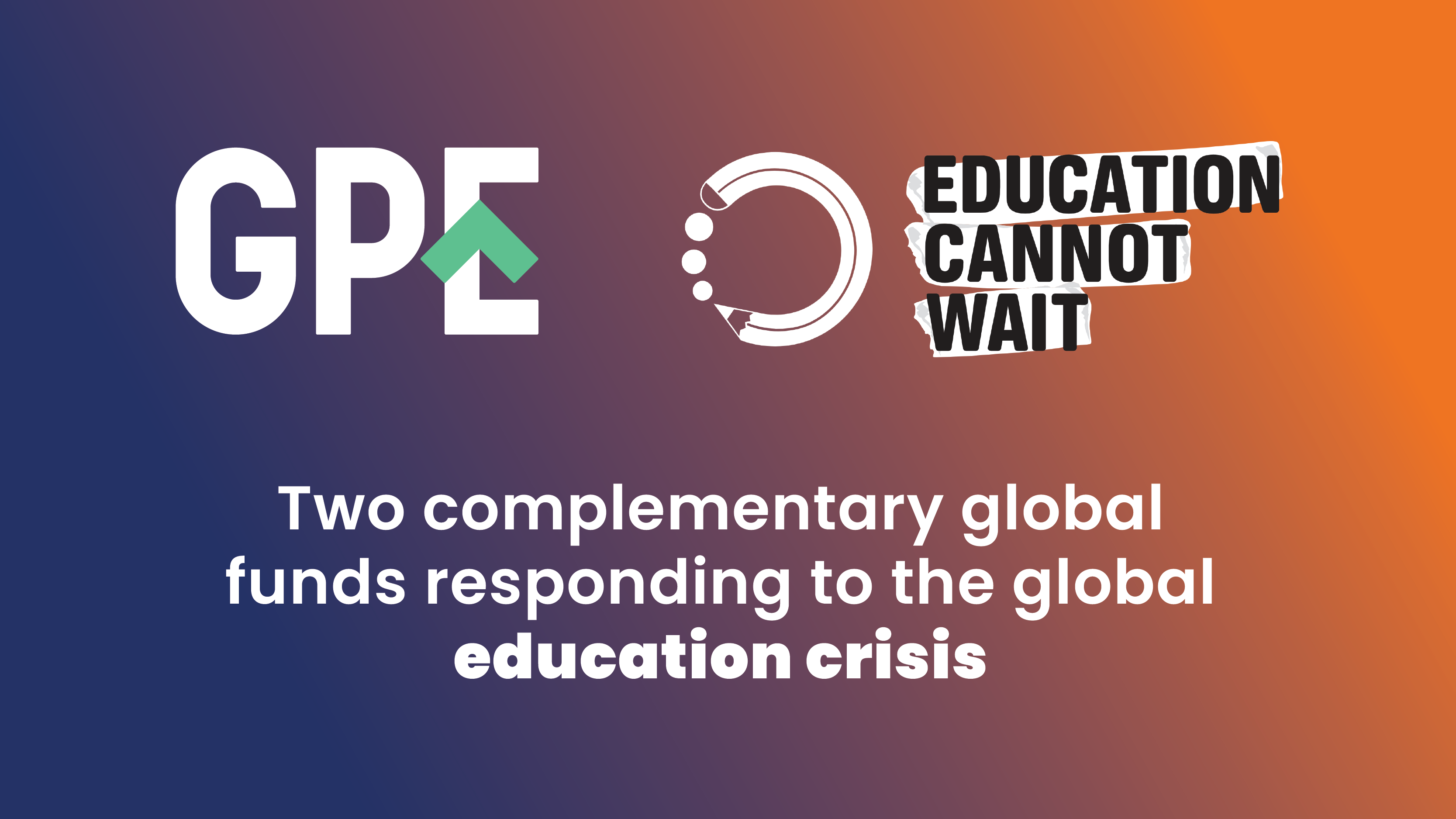Education Cannot Wait Interviews Amy Clarke, Co-Founder and Chief Impact Officer for Tribe Impact Capital LLP
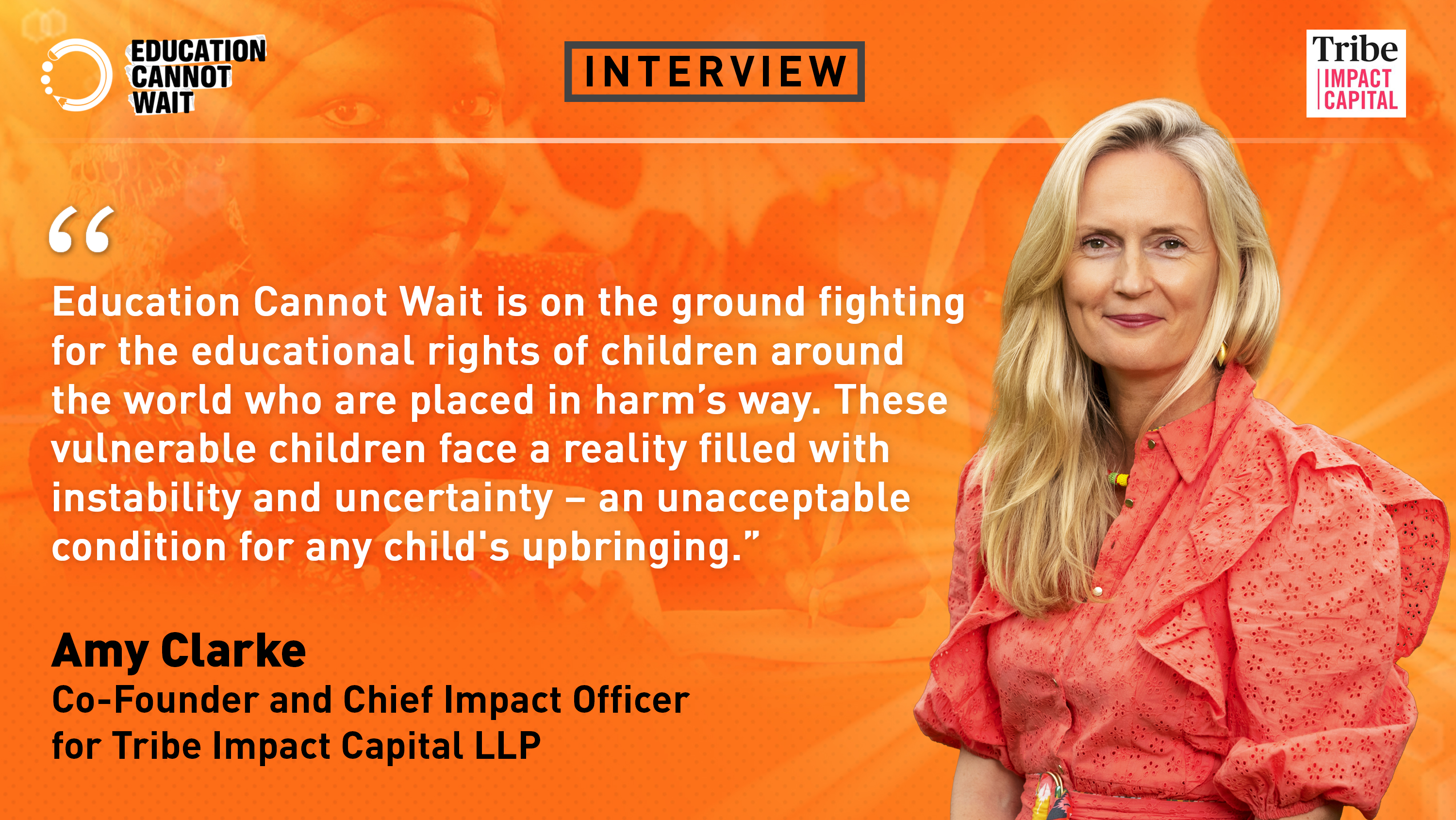
Amy Clarke is Co-Founder and Chief Impact Officer of the multi award-winning Tribe Impact Capital, a dedicated impact wealth manager and B Corps, based in London. She has over 29 years of experience in sustainability, both leading in-house teams (Microsoft and Bank of America) and as a management consultant specialising in climate and sustainability (PwC and EY). Amy serves as a Trustee to B Lab UK and is also an Advisor to fellow B Corps, Greenheart Consulting and Black Seed Ventures. She sits on the Global Steering Group of the Global Ethical Finance Initiative (GEFI) and the Investment Committee of The Blue Cross (having previously served as a Trustee). Amy has both BSc and MSc degrees in environmental studies. In her spare time, she serves as Head of Catering and Entertainment for her three-legged rescue Staffordshire Bull Terrier.
ECW: Education Cannot Wait and Tribe Impact Capital share a joint ambition to ensure children impacted by armed conflicts, climate change and other protracted crises can realize their potential through a quality education. How can our two organizations work together to make this goal a reality?
Amy Clarke: Education Cannot Wait (ECW) is on the ground fighting for the educational rights of children around the world who are placed in harm’s way. These vulnerable children face a reality filled with instability and uncertainty – an unacceptable condition for any child's upbringing. As ECW works tirelessly to address the immediate educational needs of these children, it’s crucial we also forge a path toward a future that promises fairness, justice and equity.
At Tribe Impact Capital, we recognize the transformative power of responsible investment. The finance sector plays a pivotal role in shaping global economies and societies by investing in businesses and governments around the world. Through impactful investment strategies, we can seed the conditions for a sustainable, resilient and regenerative future.
Together, our organisations can explore the development of innovative financial instruments that can support the work of ECW today, while also preparing for a stable, thriving future. By leveraging our expertise in impact investing alongside ECW's on-the-ground insights, we can work towards an integrated solution that not only educates children today, but also equips them to lead tomorrow.
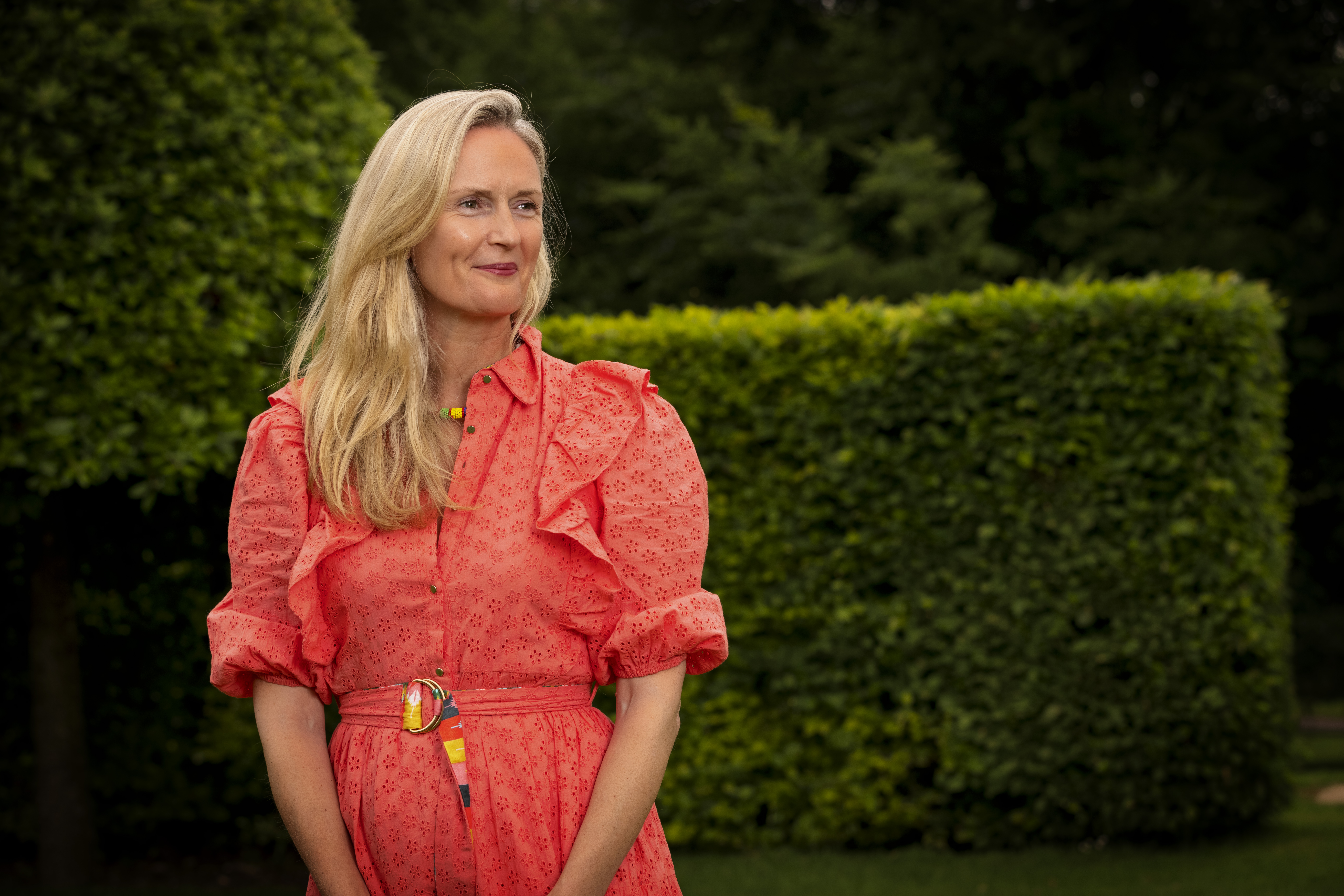
ECW: Tribe Impact Capital is focused on ‘Changing Wealth Management for Good’. Can you explain how you do this, why it’s important to think sustainably when investing, and why Tribe Impact Capital puts girls and women first in everything you do?
Amy Clarke: Tribe was established to help wealth owners reconnect their values with their capital, and to deliver a more holistic risk-based approach to the management of wealth, all wrapped up in a mission-driven model – a B Corporation.
We are committed to demonstrating that wealth can simultaneously generate positive financial returns and tangible social and environmental impact. This commitment is integral not only to reduce potential risks within investment portfolios, but also to addressing broader challenges facing people and planet. Tribe was established to show what was possible when you build a mission-driven business from cradle to crave – from how it’s governed, to how it invests, to how it advocates for change. We’re not perfect, but we’re built to serve a broad group of stakeholders, and we’re committed to being a better version of ourselves every day. Our desire to succeed is firmly rooted in our mission. We passionately believe that there is more to wealth than money and that finance can be a force for good.
Our emphasis on empowering women and girls stems from an acute awareness of the persistent inequalities within the financial system. The finance sector lacks diversity across the board, and, for women, this often looks like disparities in career opportunities as well as challenges accessing investment resources that resonate with their goals and values. We know women are interested in sustainable and impact investing. As an example, a recent Lombard Odier survey of their female clients and business partners showed a clear preference for sustainable investments among women. Not supporting this preference hinders broader societal progress. We are a gender diverse business and are committed to the work we do to support female wealth holders. Half of our clients are women, and that’s a statistic we are proud of.
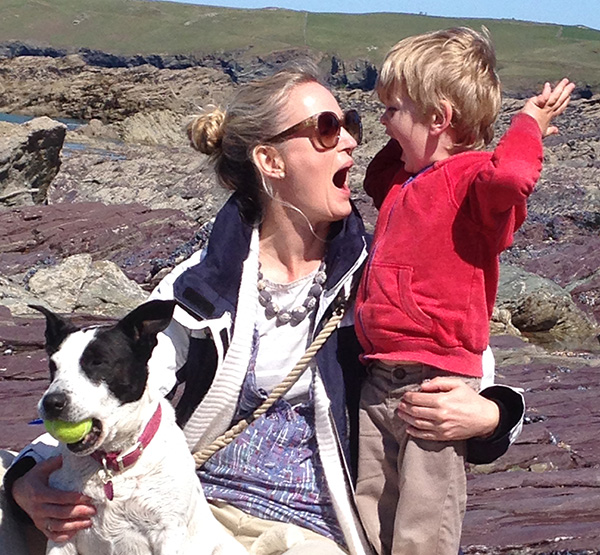
ECW: You are a leader within the B Corp movement, a network of businesses that use business as a force for good. Can you tell us more about the B Corp movement, how its members are driving change, and why purpose-driven B Corps should partner with an organization like ECW?
Amy Clarke: B Corporations believe that business should be a force for good – we are mission-driven businesses. We serve a broader community of stakeholders, not just shareholders, who have vested interests in our business – whether that’s our employees, our suppliers, or the communities who depend on us to do our jobs well. We believe people and the planet are as important as profit. In fact, profit can only truly be generated when people and the planet are factored into the decision-making process and given equal weight. Businesses that extract more value than they create cannot be truly sustainable. Running your business with a clear sense of purpose and mission opens up exciting opportunities for innovation and growth. And with that in mind, why wouldn’t the B Corps community stand shoulder to shoulder with ECW – we’re the same breed!
ECW: You have a strong background in environmental science, with some 30 years of experience in corporate sustainability and impact investing. How can we connect education action with climate action to deliver on the targets outlined in the Paris Agreement and Sustainable Development Goals?
Amy Clarke: Nelson Mandela famously stated that education is the most powerful weapon we can use to change the world. This rings especially true in the context of the climate crisis. To navigate and mitigate the complexities of climate change, we must educate people not only about the challenges but also about the practical solutions they can implement. That said, the way we educate people is profoundly important. As the saying goes, knowledge is silver but true wisdom is gold. We have to teach people how to think, not just what to think. Intellectual curiosity is what has led us to some of the most spectacular innovations in human history. But it is wisdom that has helped prevent us falling into the precipice. If we are to tackle the climate crisis, how we educate, where we educate, and what we teach will define whether we succeed or fail.
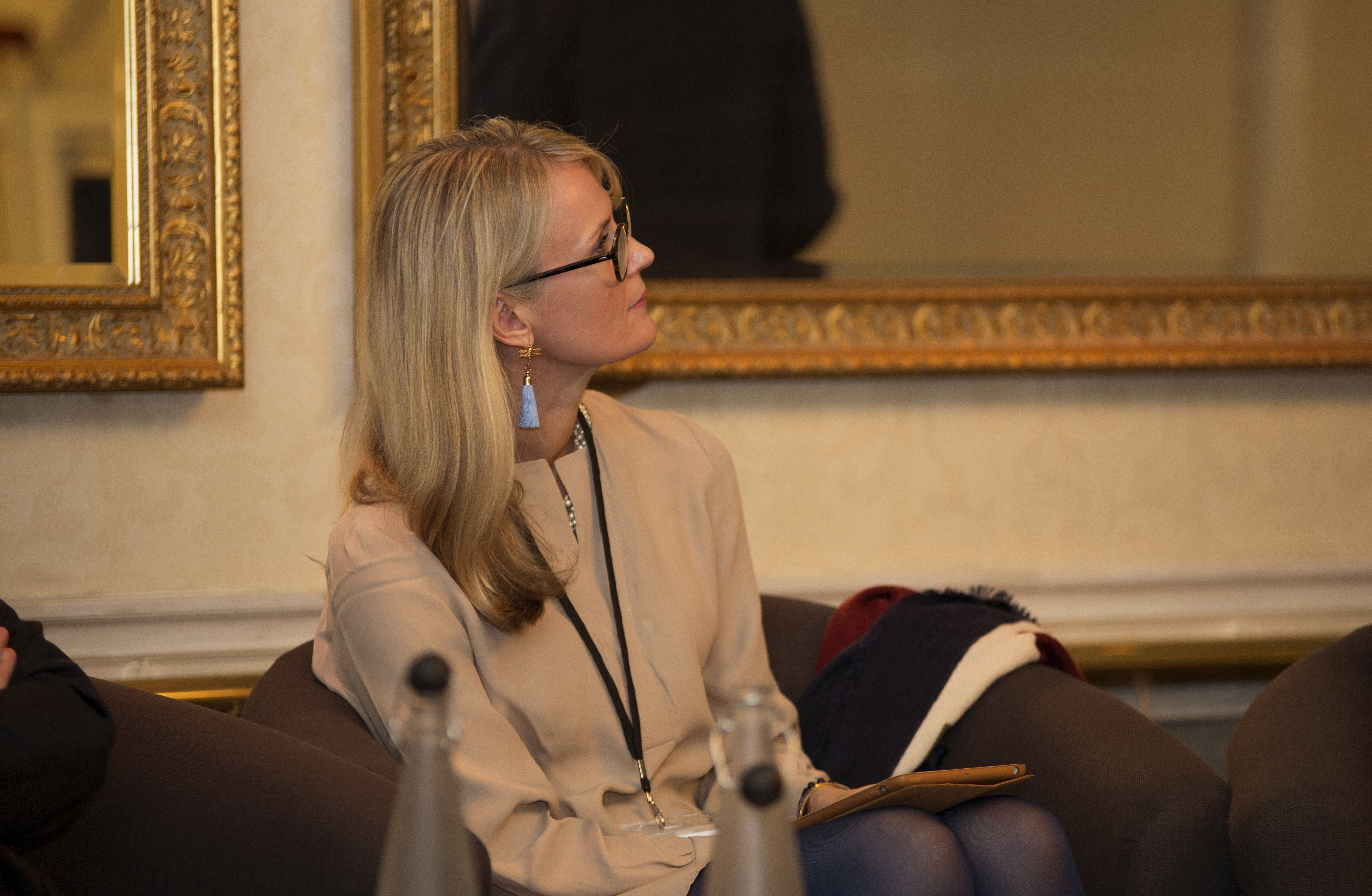
ECW: We all know that ‘leaders are readers’ and that reading skills are key to every child's education. What are three books that have most influenced you personally and/or professionally, and why would you recommend them to others?
Amy Clarke: Gosh, there are far too many to write about here!
I’d have to choose a book from my childhood for my first book and that would be Tolkien’s The Hobbit and The Lord of the Rings trilogy. I first read them when I was about 11 and was completely struck by two of the messages in those books. First, you are never too small to have an impact. As Dame Anita Roddick famously said: “if you think you’re too small to have an impact, try going to bed with a mosquito in the room”. The second is that hope is never lost. You may struggle to find it, but it’s always out there. You just have to believe. And look. Those are such important lessons for children to learn.
The second would be Parable of the Sower by Octavia Butler. It is unbelievably prescient, a little bit disturbing and really gets you thinking about the human condition. It is also just an excellent book written by a hugely talented woman.
And the final would be the one I am reading at the moment, The Master and His Emissary by Iain McGilchrist. It’s up there with Straw Dogs by John Gray as something that will challenge everything you ever thought. It’s an utterly fascinating and thought-provoking masterpiece on the brain, spirituality and the human condition. And a must read if we are to truly understand ourselves as a species and why we do what we do.

